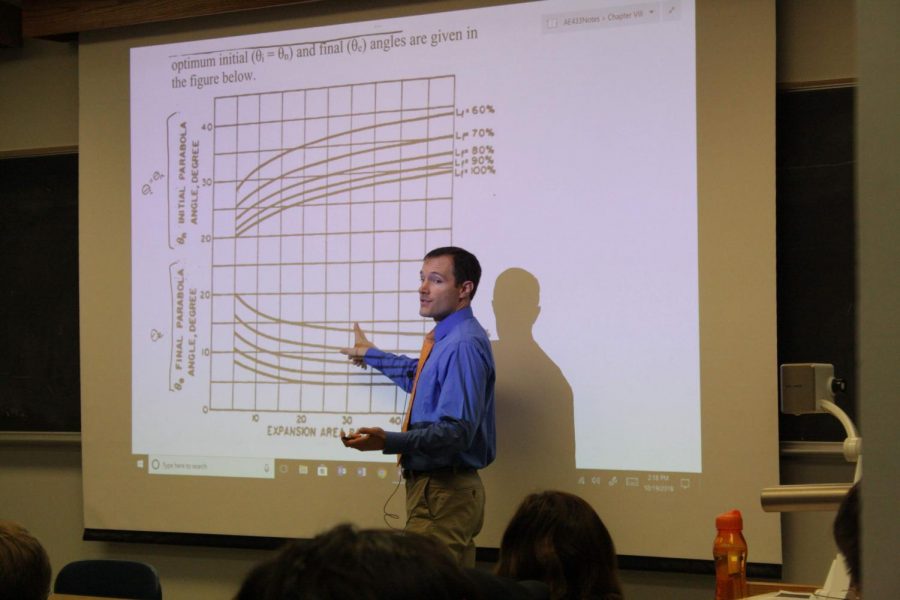GAANN funds education for doctoral aerospace students
GAANN Project Director, Professor Joshua Rovey, continues to guide his students within the Aerospace Engineering Department on October 19th, 2018
Oct 29, 2018
The Department of Aerospace Engineering was recently awarded a $1.2 million grant from the Department of Education, which will fully fund fellowships for eight doctoral students who are pursuing aerospace engineering degrees and planning on doing research or teaching in the field.
The fellowships, funded by the Graduate Assistance in Areas of National Need program, will waive tuition and mandatory campus fees as well as grant a stipend for the awardees.
The GAANN program awards grants based on national need, which is determined by which fields are considered important to the advancement of society.
Joshua Rovey, project director of GAANN and associate professor in Engineering, said there’s an increasing number of companies dedicated to aerospace engineering, which creates a greater demand for aerospace engineers.
“(Because of) companies like Blue Origin and SpaceX and smaller businesses that are developing in this new space area, there is a need for more students, more researchers, more teachers in this area,” he said. “That’s exactly what this GAANN program is meant to do: to sort of seed the development of these new researchers and teachers in that area.”
Get The Daily Illini in your inbox!
The fellowship will be awarded to students based on financial need and academic excellence. With the objective of diversifying aerospace engineering faculty, the GAANN Fellowship Committee intends to award four out of the eight fellowships to students from typically underrepresented backgrounds within the field of aerospace engineering.
“There has been a lot of research and studies showing that when the environment is more diverse in terms of gender, race, backgrounds or skill difference, the team becomes more efficient and more productive,” said Grace Gao, assistant professor in Engineering. “Take women for example. That’s half of the population, so if you can encourage more women, then you are basically doubling the potential pool of talent in this area.”
In the application for the GAANN grant, the department submitted a proposal explaining why aerospace engineering is considered an area of national need that should be supported by the GAANN program.
“If you look at the students, the people who are going into those kinds of careers, being a researcher or teacher or educator in the aerospace engineering area, they have a Ph.D. in that field,” Rovey said. “With the focus of the program being increasing the number of researchers and teachers within a particular area, it makes sense to focus on doctoral students.”
Applications for the fellowship will be reviewed by the GAANN Fellowship Committee, which will evaluate applicants based on GPA, essays, Graduate Record Examinations scores and other factors.
“Space systems (also) needs more researchers because there is so much mankind doesn’t know about space and how to interact with it,” said Devin Bunce, graduate student in aerospace engineering, in an email. “Many of our solutions to terrestrial problems simply do not work in space applications. By solving these challenges, mankind will create solutions that will benefit those not involved in space.”






